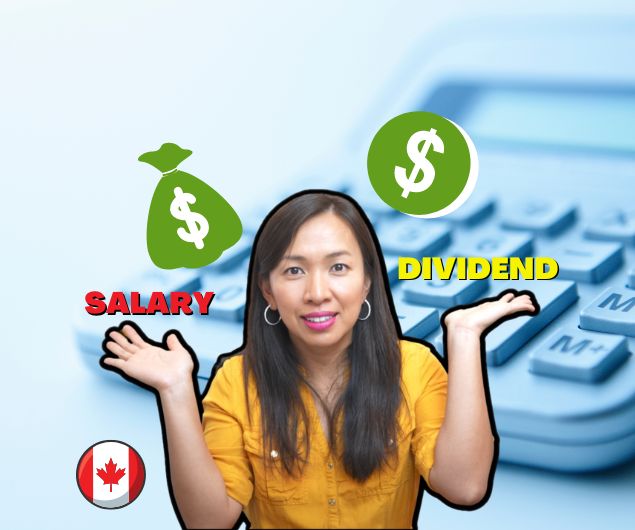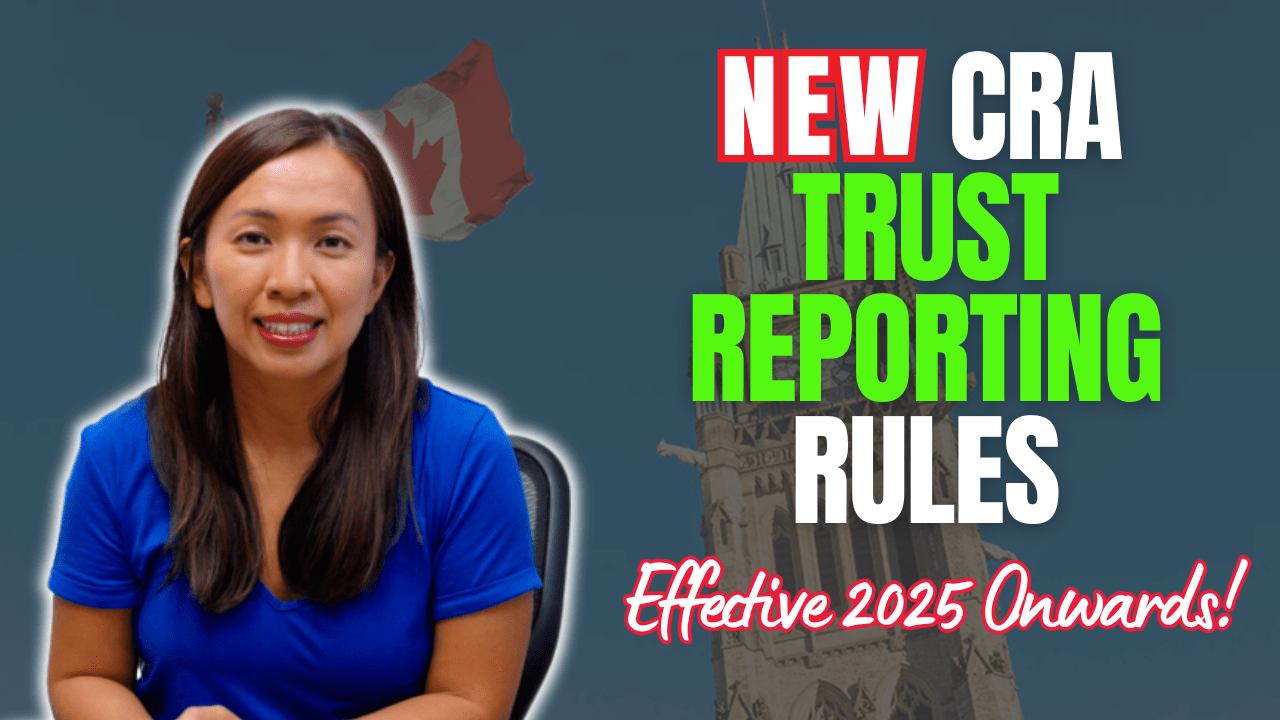Many real estate investors and small business owners wonder if they should pay themselves salaries or dividends from their corporation.
I started off paying myself all dividends in the early days. Nowadays, I pay myself a combination of dividends and salary.
The truth is, there is no one size fits all solution.
I came up with 6 decision factor to help you decide salary or dividend.
I also recorded a video on a detail case study on whether you should pay yourself salary or dividend.
1. Salary is a deductible expense, and dividend is not
Let’s use an example to illustrate.
Say a corporation makes $400,000 before paying a salary. Now they have to decide whether they should pay the salary or dividend.
Say the corporation pays $100,000 to the shareholder as a salary, the corporation is taxed on $300,000 at 12.2%. The individual who receives the salary will then pay tax on the $100,000.
If the corporation decides to pay the dividend instead, the corporation would first get taxed for $400,000 at 12.2%.
The individual then receives the $100,000 as dividend and pay less personal tax on the dividend income received – after accounting for the corporate tax that you already pay inside the corporation.
2. There’s an additional cost involved, such as CPP & EI, when you pay a salary
When the corporation pays a salary, it is also required to withhold taxes, employee’s portion of Canada Pension Plan and Employment Insurance and remit them to the government.
When you get paid for $100,000 salary, you always know that your net amount is never $100,000.
As an employee, you are responsible for making contributions to CPP & EI.
In addition, you are, of course, also responsible for paying personal income tax on the $100,000 you earn.
CPP is maxed out at $3,500 in 2022. EI is capped at $953.
The employer, which in this case is the corporation, is also required to make the same amount of contribution of CPP and 1.4 times of EI, capped at $1,334.
If you own the corporation, more often than not, we advise the clients to opt out from paying EI. The theory behind it is that you cannot fire yourself from your own company and the government generally does not allow you to claim employment insurance when you become unemployed.
Unless you get pre-approval from CRA to opt in for the Employment Insurance plan, you are likely not eligible to claim employment insurance anyway.
The corporation is incurring an extra deductible expense of $3,500 if it chooses to pay you a salary instead of dividend.
If you combine the employer portion and employer portion of CPP, the total cost is more than $7K that you will not otherwise need to pay if the corporation chooses to issue a dividend.
3. Salary can give the taxpayer RRSP contribution room, qualify for financing & enable you to deduct childcare expense
Although the costs seem to be higher with salary, there are some other benefits from paying a salary.
RRSP contribution limit is calculated as a percentage based on earned income. So salary is one of them, but dividend isn’t.
If you want to save money in your RRSP account, paying yourself via dividend won’t work.
Banks look at employment income more favourably when you apply for a mortgage. So, paying yourself a salary can allow you to qualify for more mortgages and purchase more properties.
For the parents out there with young kids, you may incur childcare expenses, of which a portion of it is deductible against your income. Although, it is only deductible against the lower income’s spouses earned income.
Dividend income is not part of the definition of earned income, but salary is. In other words, if you make a $100,000 dividend income, you’re the lower-income spouse.
If you also incur $8,000 of childcare expenses, you will NOT be able to deduct the $8,000 expense in your personal tax return.
4. You are entitled to an additional employment amount (as a personal tax credit) if you are paid a salary
When you earn a salary, you get another $1,287 employment amount as non-refundable personal tax credit. Self-employed individuals are not eligible to claim this amount, unfortunately.
Calculated on the base personal tax rate, this is equivalent to $1,287 x 15% = $193 non-refundable tax credit.
This isn’t available when you earn a dividend income. In other words, you got to save $193 if you pay yourself a dividend.
5. Salary must be reasonable when the employee is related
When you pay a low-income spouse or adult child salary, it must be a reasonable amount.
The family members must work for the company, and the amount must be comparable to the market.
But when you declare a dividend, you can choose the amount you pay them – it can even be somewhat unreasonable, provided certain criteria are met.
6. Salary helps you avoid the Tax on Split Income Rule
Tax on Split Income (TOSI) rule can apply if you issue an unreasonable amount of dividend to your lower income family member who are not involved in the business operation on a continuous basis.
As an example, if you pay your 18 year-old son $40,000 dividend on mowing lawns and snow removal on one single family home property that has limited space, chances are, the $40,000 dividend is not a reasonable compensation.
TOSI rule can apply, which means that your son would have to pay highest marginal income tax on the $40,000 dividend received.
If salary is paid, even if it is unreasonable, the end result is less severe compared to the TOSI rule.
Okay, it is not a simple answer, isn’t it?
Speak to a professional accountant that knows your personal situation before making a decision. Don’t forget to consider the six points illustrated above.
Until next time, happy Canadian Real Estate investing.
Cherry Chan, CPA, CA
Your Real Estate Accountant





